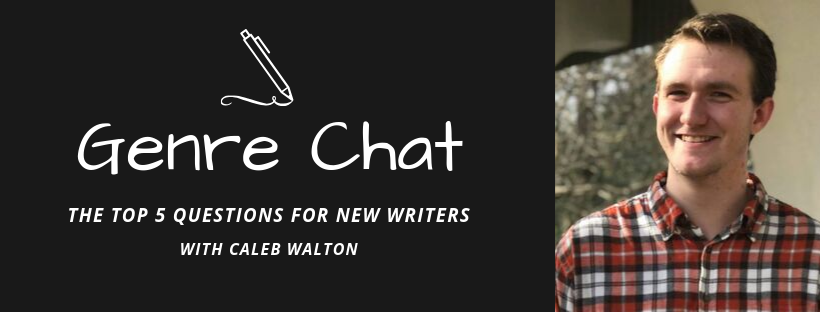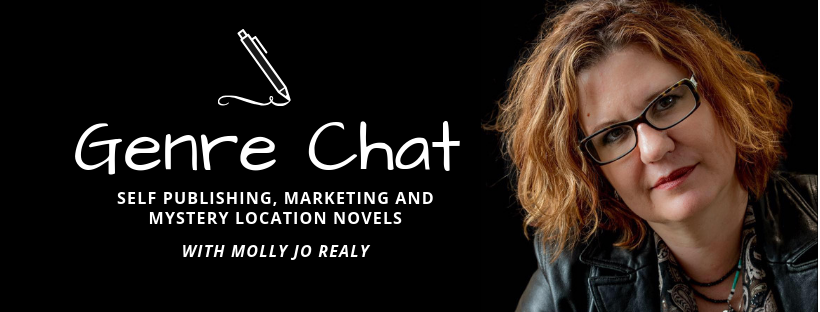In addition to being a loving father and husband, Aaron Gansky is an award-winning novelist, teacher, and podcast host. In 2009, he earned his M.F.A in Fiction at the prestigious Antioch University of Los Angeles, one of the top five low-residency writing schools in the nation. Prior to that, he attained his Bachelor of Arts degree in English with an emphasis in Creative Writing from California State University of San Bernardino, where he studied, in part, under Bret Anthony Johnston, now the Director of Creative Writing at Harvard University.
His first novel The Bargain (2013, Lighthouse Publishing of the Carolinas) was a finalist for the Selah Award for debut novel. Two years later, The Book of Things to Come (2015, Brimstone Fiction), the first book in his Hand of Adonai YA Fantasy series, won the Selah Award for YA Fiction. He has written two books on the craft of fiction; Firsts in Fiction: First Lines and Write to Be Heard (with Diane Sherlock). To find out more about his books, visit AaronGansky.com.
As a Creative Writing teacher in California, he brings his expertise on the craft to several writing conferences around America where he speaks on a variety of topics.
In 2013 he began his Firsts in Fiction Podcast with Steve McLain. Shortly after, Heather Luby joined the line up. Lately, he chats with his father, novelist Alton Gansky, about elements of the craft. Each week they dispense practical, in-depth analyses of how to write powerful fiction.
You may find Aaron on Twitter (@adgansky) and Facebook.
Show Notes
Caleb: Why did you decide to write fantasy novels?
Aaron: Writing fantasy was not something that I had ever planned on doing. I had just completed my first novel, “The Bargain” and agonized over every word, every turn of phrase, every simile and every metaphor. I just really wanted that to be the Great American Novel. After that I thought, “fantasy sounds like fun!” I love the Final Fantasy series, and I was playing a lot of Skyrim, and I thought it would be fun to do a fantasy. I don’t have to worry about trying to be highbrow literary and worry about every turn of phrase. Turns out I still worry about every turn of phrase, and every chapter, and every word, and every sentence.
Caleb: What made you want to write a YA series? How does fantasy change when written for teenagers as opposed to adults?
Aaron: Typically, it’s the age of the protagonists. In Game of Thrones, your primary characters are all adults. For me, I was dealing with contemporary teenagers, and as a teacher I felt like that was a natural thing. Teenagers are interesting. They take things very, very seriously. There’s a lot of interpersonal conflict, a lot of self discovery that goes on as well as discovery of a new world. I felt like that was a natural way to increase the tension and then the stakes and the conflict in the story.
Caleb: What are some of the main characteristics of fantasy that publishers and readers will look for?
Aaron: Really what they’re looking for is kind of an epic scope. Fantasy readers are very big into setting and world building. They’re very in tune with that and they want to know what this new and strange world looks like. It’s discovery for them. They’re also pretty militant about rules – the rules that you set up in your world. They’re looking for usually some sort of swords and sorcery… elves and dwarves and things of that nature. But really, they want something that feels unique and original. Even if it’s familiar, they want something that’s going to be different enough.
Caleb: How does the structure of a novel change when you move into the fantasy genre with things like word count and story flow? I’ve heard that fantasy requires a longer length to account for things like world building.
Aaron: Fantasy readers are notoriously patient, shockingly so I would say. By and large in terms of word count you have a lot more room to play with. If you’re a new writer, I would default to the normal industry standards (75,000 to 95,000 words). If you look at the Sorcerer’s Stone (the first book in the Harry Potter Series), it’s much smaller than Deathly Hollows. Each book increased in length, and that’s because JK Rowling had developed a reputation and people would drop 30 or 45 bucks on her books. That was far less of a risk for the publisher.
Caleb: What are some things that you do to help with the world building process?
Aaron: I think I’m different than the normal fantasy author. I was intentionally writing to kind of challenge and perhaps even break a lot of the expectations, the rules and expected tropes of fantasy. I was going to write a standalone novel. I wasn’t going to write about politics and I wasn’t going to fall into writing 18 chapters of world building. When I started the novel, I wanted kind of a quick, fast paced story. I found out when I was writing that the genre really demands those things for a reason. I had to start putting in some political intrigue, and I had to start putting in some more of the world. I tried to do it a little more organically. A lot of people will sit down and world build first, and come up with their magic system and their rules. I just started writing. As I was writing my main story, I was also creating my story bible at the same time.
Caleb: Are you an organic writer or an outliner?
Aaron: I’m very much a discovery writer. If I know where my story is going, I feel like my readers know where my story is going. I don’t like to write things that are too wildly predictable. Give them something that they didn’t expect but that they like more than what they expected. I outline the next scene or two, if that, but it’s usually just the title of what’s going to happen in the scene and that’s about it.
Caleb: If you already have most of the story in your head, is there still a way to write organically?
Aaron: You can still be organic in that way. I’ve outlined an entire novel and then I didn’t follow the outline.
Caleb: I guess it’s just a matter of following what the character would naturally do as opposed to strictly following the outline?
Aaron: Right. What would my characters naturally do in this situation? My formula is very simple. It’s just to create characters that people love and then mess up their lives.
Caleb: You mentioned character development. Do you go about that organically as well, or do you like to use things like character sketches?
Aaron: A little bit of both. I will try to find out as much as I can about the characters. When I begin writing, I always challenge myself to put some sort of scene where a character does something that I don’t expect. A normal person would do A. This person is going to do B, and then I challenge myself to figure out why. What it does is it helps me understand that my characters are not my characters. They are their own people, making their own decisions, and there’s something that’s happened to them in their past that I don’t know.
Caleb: What are some of the common mistakes or clichés that newer writers might make with fantasy stories?
Aaron: I really think that the number one issue is the clichés. They rely too heavily on worlds that too closely resemble that of Tolkien or Narnia, or “insert favorite fantasy series here.” Fantasy readers like new and exciting things. It’s a problem that all writers have, especially when they’re beginning, is how to be inspired by something without copying something. My recommendation is to mix and match. What does Tolkien look like when you mix it with Narnia? Or in my case what does Jumanji look like when you mix it with Skyrim?
Caleb: If you had to give one piece of advice to an aspiring writer, what would that advice be?
Aaron: It’s hard to narrow it down to one, so I’ll make it a compound recommendation, and it’s the thing that really got me going. I was at the Blue Ridge Writer’s Conference, as a writer originally. I think it was Todd McNair who was talking, and he said something to the effect of you have to start thinking of yourself as a writer. He says if you sit down on a plane and the person next to you says “what do you do?” and you tell them what you do for your day job, maybe that’s not the right train of thought. I was telling people I was a teacher left and right. Now, when people ask what I do, I say “I’m a writer.” I also teach high school, but I define myself as a writer. The biggest thing is to think of yourself as a writer, and then to write. You have to read, and you have to consume as much information as humanly possible about how to become better at the craft.




0 Comments